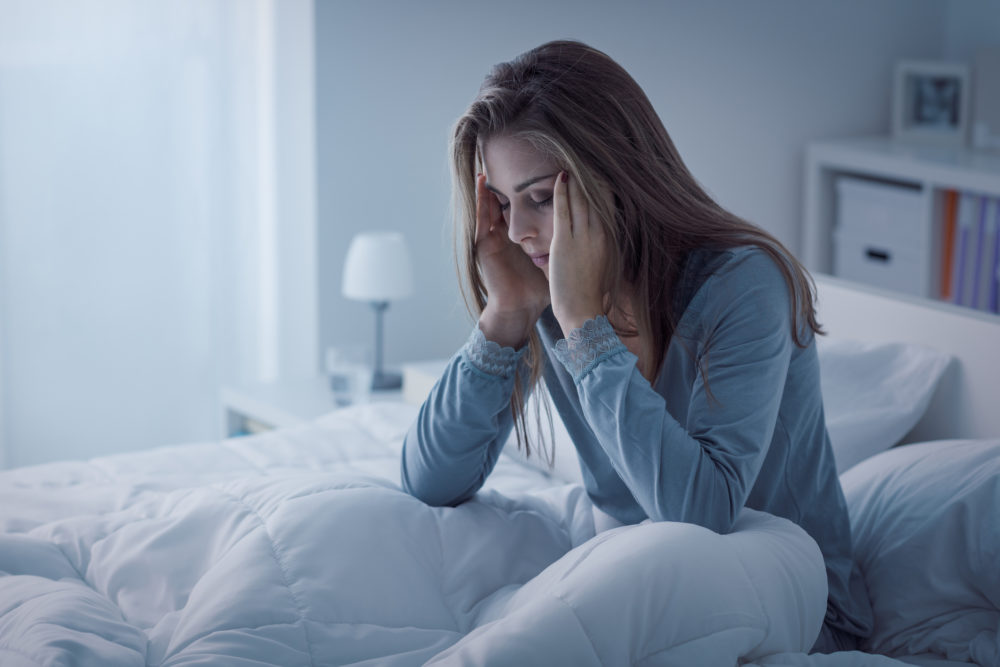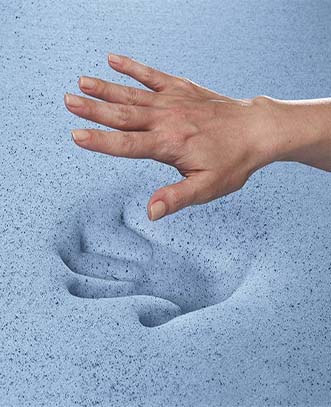Women are exhausted. 67% of American women have trouble sleeping. Sleep disorders, common in almost 40 million Americans, are more common in women. According to the National Sleep Foundation 63% women, versus 54% men, struggle with sleep and feel sleepy throughout the day. Shifting hormone levels make it difficult for women to get the average of eight hours of sleep they need, but their lifestyles are the bigger culprits.
SLEEP BETTER. FEEL BETTER. LOOK BETTER
Sleep is essential to life. When we sleep, we manufacture essential hormones, repair cell damage, reduce stress, restore and rebalance our bodies and minds. Too little sleep can cost women their health, sex life, and relationships. Tired workers do a poor job. Extreme sleep debt can lead to anxiety, depression, cognitive deficiencies—and can leave you looking older than your years and packing on the pounds.
“During sleep, your skin repairs itself, grows new cells and fortifies it defenses against moisture loss and free radical damage,” writes Michael Breus, Ph.D., in his book Beauty Sleep. “Lack of sleep also causes stress, which increases cortisol, resulting in your body storing fat, burning muscle and increasing your appetite.”
Most women have over scheduled lives that make it hard to fall asleep and stay asleep. Single women log less than six hours a night. 79% percent of the pregnant women who responded to the 2007 National Sleep Foundation Sleep in Americapoll said their sleep was more disrupted when they were pregnant than any other time in their lives. Three-quarters of stay-at-home moms are plagued with some form of insomnia. Sleep is a luxury for working moms, particularly if they do shift work. Menopausal women struggle with their loss of estrogen, which decreases serotonin levels.
WHAT KEEPS WOMEN UP AT NIGHT?
Women work long hours, care for the kids and house, consume too much caffeine, eat the wrong foods, do too little exercise, and are desperate for some time for themselves. Women also don’t make sleep a priority. Around the time we should be winding down for bed, women are still going at full speed. “In the hour prior to going to bed,” says the National Science Foundation’s 2007 poll, “87% of women watch television, 60% complete the remainder of their household chores, 37% do activities with children, 36% do activities with other family members, 36% are on the Internet and 21% do work related to their job at least a few nights a week.”
LITTLE LIFESTYLE CHANGES CAN MAKE A BIG IMPROVEMENT IN YOUR SLEEP
- Avoid Foods And Drinks High In Sugar And Caffeine: Skip that after-dinner coffee. You might want to switch to decaf and sugar free drinks after your coffee jolt in the AM.
- Limit Alcohol: A nightcap may make you fall asleep, but alcohol spikes your blood- sugar and is dehydrating. So drinking too soon before bed means that you are likely to wake up in the middle of the night and be unable to fall back to sleep.
- Stop Smoking: Peter Hauri, Ph.D, former Director of the Mayo Clinic Insomnia Program, says this is a must. On top of all the reasons cigarettes are bad for you, nicotine is a stimulant that interferes with sleep.
- Skip the Big Dinner: It’s tough to fall asleep when your body is working overtime to digest a meal. Heartburn is also more likely to act up when you lie down with a stomach stuffed full of spare ribs and banana cream pie.
- Get Moving: Exercise burns calories, helps you manage stress, and makes you feel good. William C. Dement, M.D., Ph.D., author of The Promise of Sleep, recommends exercise in the afternoon or early evening, stopping at least three hours before bedtime.
- Drink Right for a Good Night’s Sleep: Limit your water and soda, etc. before bedtime, and you’ll limit your midnight runs to the toilet.
- Turn Off The TV: In fact, get the TV and any electronics out of your bedroom. Computers, videogames, radios, etc., are distractions, make noise and usually give off some kind of light—and light disrupts your sleep-wake cycle. Also, skip the nightly news and any violent programming. You don’t need the extra stress.
- Stick To A Bedtime Routine: You know the drill—wash your face, brush your teeth, smooth on your skin lotions and slip on your PJs. Try to get to bed at the same time every night—as early as possible—and wake at the same time every morning.
- Take Time For You: Even if it’s just 15 minutes in a warm bath with a candle burning and some soothing music playing.
- Create The Right Environment For Sleep: Your bedroom should be dark, cool, quiet and tidy. Clutter is a distraction and just more proof that you didn’t finish your chores.
- Get A Good Mattress And Pillow: If your mattress is too old, it’s time to go consult a mattress professional. You aren’t likely to catch any sleep on a lumpy mattress, or one that’s too hard or soft mattress. If you toss and turn, and your neck and back ache in the morning, you’re probably ready for a new pillow.
- Reduce Stress: Turn off your mind when it’s time to turn off the lights. Even if you’re on a deadline, stop work three hours before bedtime. If your mind is racing with to-dos and worries, get them out of your head and on to a piece of paper. Try calming imagery, or muscular relaxation, mental focusing, and breathing techniques.
See Your Doctor: Sleep disorders are serious business. Drowsy driving kills more than 1,500 people a year, according to the National Highway Traffic Safety Administration (NHTSA). You really do deserve a good night’s sleep. So, if problems persist, see your doctor or a sleep professional.







